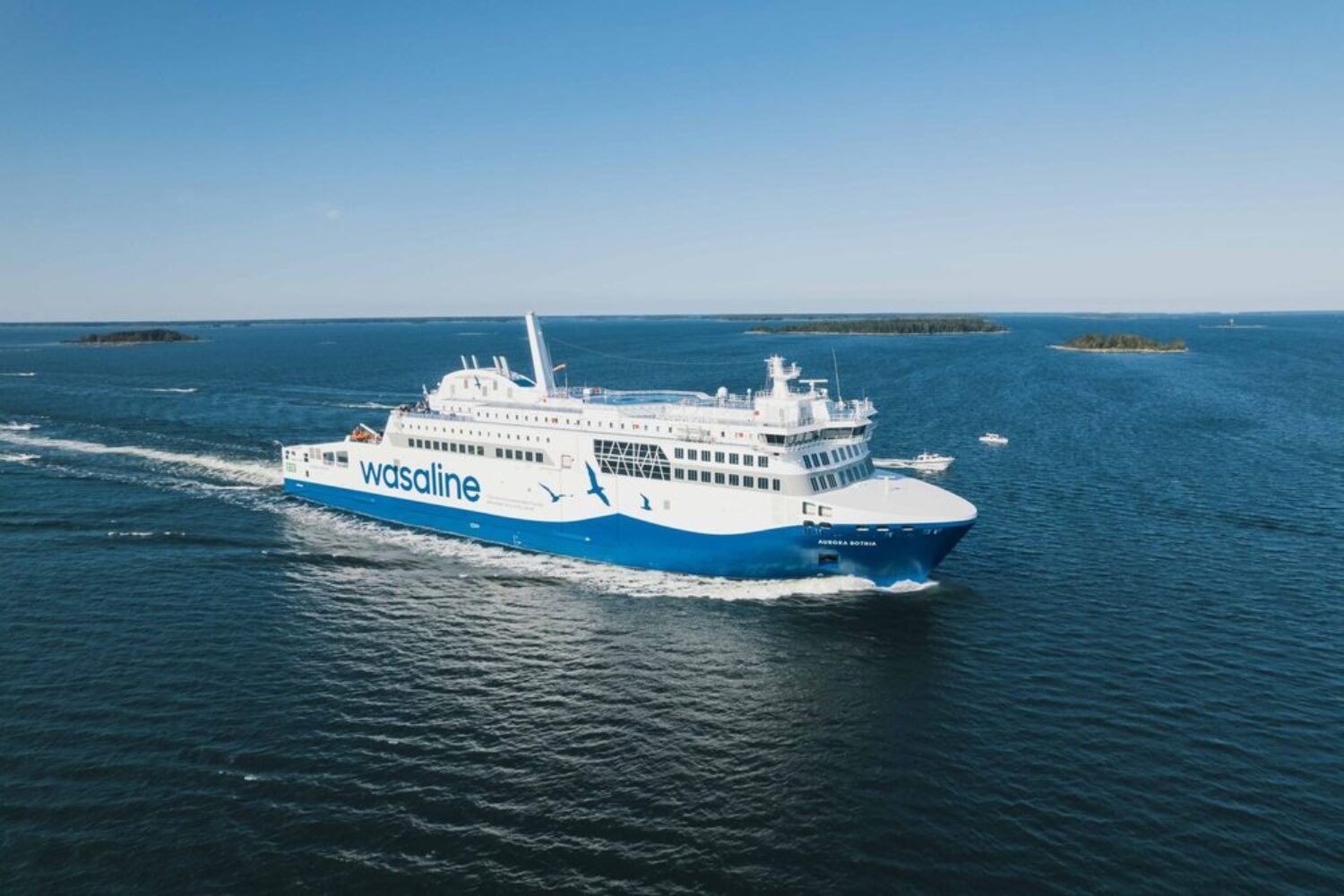The Finnish-Swedish ferry operator Wasaline claims to be the first shipping company in the Baltic Sea region to achieve climate neutrality.
This is based on a biogas supply contract with the energy company Gasum and a Fuel-EU Maritime Pooling Agreement with Stena Line, which enables the exclusive use of renewable fuels. At the same time, the Vaasa-Umeå link will start operating as the first international “Green Shipping Corridor” – supported by the DNV-led “Nordic Roadmap” project. The target originally set for 2030 has thus been met.
The centerpiece of the fleet is the hybrid ferry “Aurora Botnia” (3,500 dwt), which will enter service in 2021 and is equipped with dual-fuel engines and battery systems. At the beginning of the year, Wasaline announced an expansion of the battery capacity by 10.4 MWh. Following the planned conversion in cooperation with AYK Energy, Foreship and Wärtsilä in January 2026, the “Aurora Botnia” will have the largest battery capacity of any RoPax ship in the world with a total of 12.6 MWh.
“Many shipping companies are currently discussing the rising costs associated with the EU Emissions Trading Scheme (ETS) and are looking for exemptions. Instead, we have focused on the opportunities and worked continuously to reduce our greenhouse gas emissions. With the cooperation between Stena Line and Gasum, we are already achieving climate neutrality today – at no extra cost to freight or passenger customers,” said Wasaline Managing Director Peter Ståhlberg.
Project partner DNV also acknowledged the importance of the Vaasa-Umeå route. “This milestone directly supports the goals of the Clydebank Declaration and the Nordic Ministerial Declaration on zero-emission shipping routes,” explains Vegar Rype, Segment Director RoRo and Ferries at DNV.
Meanwhile, Stena Line CEO Niclas Mårtensson emphasized that the integration of the “Aurora Botnia” into the Fuel-EU Maritime Pool provides access to previously unavailable biogas volumes, which not only reduces CO₂ emissions, but also optimizes the cost structure.
Gasum Vice President Jacob Granqvist emphasized that renewable biogas is already a concrete solution for reducing emissions in maritime transport. The aim is to further increase its availability in the coming years.













